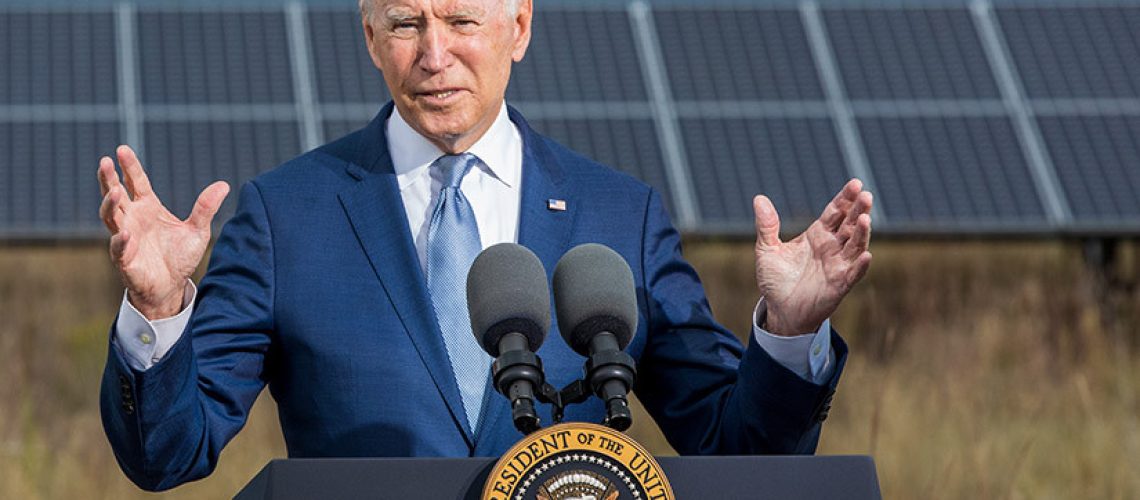The Biden-Harris Administration and the DOE today launched new initiatives to connect families to more reliable clean energy, lower electricity bills and create good-paying jobs in the domestic solar industry. DOE, in collaboration with the U.S. Department of Health & Human Services (HHS), announced five states and Washington, D.C. that will support the pilot of the Community Solar Subscription Platform to connect families to solar energy and lower electricity bills through the Low-Income Home Energy Assistance Program (LIHEAP) and other low-income assistance programs. DOE also announced $10 million from President Biden’s Bipartisan Infrastructure Law to jump-start solar energy careers in underserved communities.
“Every American community, especially those that face disproportionately higher energy burdens, deserves the economic and health benefits that come with increased access to affordable clean energy,” said U.S. Secretary of Energy Jennifer M. Granholm. “This is why DOE is working across the federal government to open up community solar that will rapidly lower electricity bills for households that need it most and create good paying jobs in every pocket of America.”
HHS’s LIHEAP program keeps families safe by assisting eligible households with their heating and cooling energy costs, bill payment assistance, energy crisis assistance, weatherization, and energy-related home repairs. Transitioning to solar energy can help households across the country save money on their electricity bills, but many Americans have been unable to access these benefits. Community solar provides a solution for individuals who cannot get rooftop solar panels. DOE’s community solar target is to power 5 million homes and provide 20% savings on a subscriber’s energy bills, up from 10% on average today.
The Community Solar Subscription Platform is designed to connect community solar projects with verified cost savings to households participating in government-run assistance programs like LIHEAP. The initial pilot will be supported by the states of Colorado, Illinois, New Jersey, New Mexico, New York and Washington, D.C. These states will provide feedback, coordination and data to test the operability, security and performance of the platform. DOE has prioritized working with states that have existing programs to support low-income community solar development so that, if successful, participants will see significant electricity bill savings, including:
- 20% in Illinois, New Jersey, New York, and New Mexico
- 50% in Washington, D.C. and Colorado
DOE estimates that this could lead to electric bill savings of up to:
- $240 million in Colorado
- $300 million in Illinois
- $175 million in New Jersey
- $30 million in New Mexico
- $400 million in New York
- $40 million in Washington, D.C.
DOE’s National Community Solar Partnership, HHS, National Renewable Energy Laboratory, Lawrence Berkeley National Laboratory, National Energy Assistance Directors Association, and the National Association of State Energy Officials are collaborating on the Community Solar Subscription Platform.
DOE also issued a Request for Information to obtain feedback on the structure of the platform from community-based organizations, community solar subscription managers and developers, state and local governments, researchers, LIHEAP implementation organizations, and others. Responses are due by August 31.
While the solar industry is already more diverse than national averages, the Biden-Harris Administration has invested $10 million through the Bipartisan Infrastructure Law to ensure that the future solar workforce is equitable, inclusive, and benefits people in underserved communities who live in and around the projects. According to estimates in DOE’s Solar Futures Study, the industry will need to create hundreds of thousands of good-quality jobs to achieve decarbonization goals. These jobs should be accessible to workers from all backgrounds, provide competitive wages and benefits, and offer opportunities for union membership.
DOE’s Advancing Equity through Workforce Partnerships program will fund projects that support new workforce programs that bring together employers, training providers, and labor unions to support pathways to the solar industry to recruit, train, and retain an inclusive workforce. These programs will be demand-driven, worker-centric and sector-based, and will utilize established workforce programs and resources, be sustainable and replicable, and prioritize energy justice. By assessing the regional labor market and the current and future needs of employers, multi-stakeholder project teams can help ensure optimal alignment between different training programs and the actual needs of industry.
In order to encourage the development of equitable community solar projects and programs, DOE is also launching the Sunny Awards for Equitable Community Solar, a new awards program that will recognize best practices in community solar that increase equitable access and ensure benefits go to subscribers and their communities. Up to five finalists can win a Sunny Award and prizes of $10,000 per team.
News item from DOE



